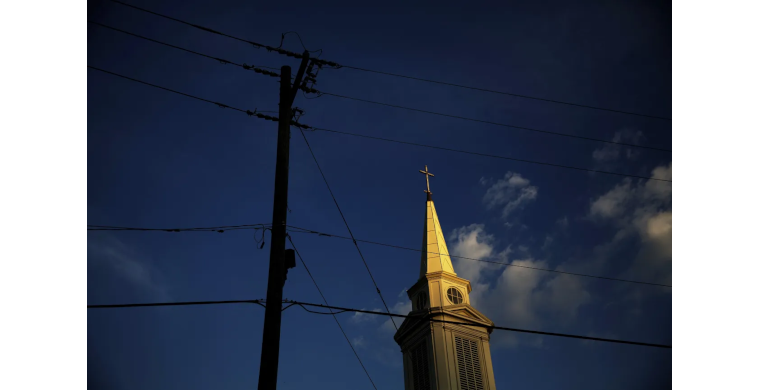Mainline Protestant pastors are often more liberal than church members. Does it fuel conflict?
New data from Public Religion Research Institute identifies a political gap between mainline Protestant pastors and worshippers
By Kelsey Dallas
DESERET NEWS
Sept 14, 2023
Mainline Protestant clergy members and the worshippers they serve may share a faith, but they often don't hold the same political views, according to a new survey on mainline Protestantism from Public Religion Research Institute.
The survey showed that more than half of clergy members (55%) identify as liberal, compared to just 1 in 5 mainline Protestant churchgoers.
Church leaders are also more likely to identify as Democrats. Nearly half of mainline Protestant clergy members (49%) describe themselves as a Democrat, and just 14% say they're Republican.
Among churchgoers, the balance between the two parties is more equal: 30% of mainline Protestant worshippers identify as Democrats, while 34% identify as Republican.
Political Conflict in Churches
In spite of these political differences, most clergy members believe their congregation accepts them and does a good job discussing thorny political issues, like immigration and LGBTQ rights.
"The majority of mainline clergy say their congregations are accepting of political differences, whether it is the clergyperson's views or another congregant's views," Public Religion Research Institute reported. "Nearly 7 in 10 clergy (69%) say their congregations are at least moderately accepting of them when they have a political difference."
But some faith leaders do worry their church has grown increasingly divided by politics in recent years, as the United States, as a whole, has navigated growing tension between the Republican and Democratic parties.
"Among mainline Protestant clergy, 37% agree that their church is more divided by politics than it was five years ago," the survey found.
The new research is based on responses from 3,066 clergy members from the seven largest mainline Protestant denominations in the U.S.: the United Methodist Church, the Evangelical Lutheran Church in America, the American Baptist Churches USA, the Presbyterian Church (USA), the Episcopal Church, the United Church of Christ and the Christian Church (Disciples of Christ).
The survey was conducted online between November 2022 and May 2023. The margin of error is plus or minus 2.3 percentage points.
Should pastors endorse candidates?
One possible reason why many mainline Protestant churches avoid politics-related infighting is that few Americans want houses of worship to be political environments.
Most U.S. adults, including a large majority of mainline Protestants, say faith leaders should not endorse political candidates and should generally "keep out of political matters," according to a 2020 survey report from Pew Research Center.
"Protestants in the evangelical and historically Black traditions are the only major U.S. religious groups in which more people say churches should express their social and political views. Only about a third or fewer in other religious groups share this view," Pew reported at the time.
END














